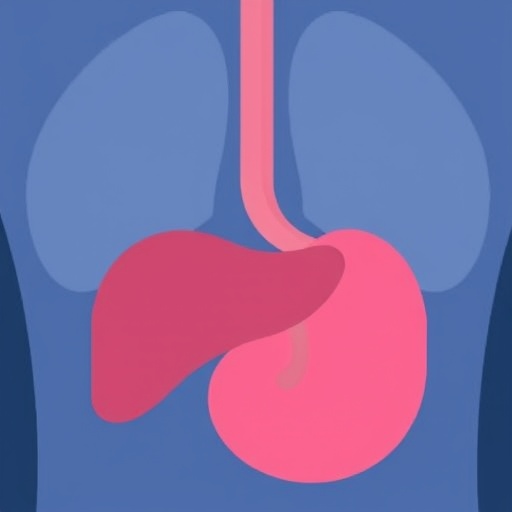Liver cancer stands as one of the most formidable challenges in global oncology, ranking as the sixth most commonly diagnosed cancer and the third leading cause of cancer-related deaths worldwide. Predominantly, hepatocellular carcinoma (HCC) accounts for approximately 80% of all liver cancer cases. The growing incidence and mortality linked to HCC underscore an urgent need for concerted efforts across clinical, public health, and research domains to address this escalating burden.
In a landmark initiative, an international Commission led by Professor Masatoshi Kudo of Kindai University in Japan, alongside Professors Jian Zhou and Jia Fan from Fudan University, China, has synthesized a comprehensive report delineating strategic frameworks to counteract the global burden of hepatocellular carcinoma. Published in The Lancet on July 28, 2025, this extensive meta-analysis integrates multidisciplinary expertise to inform evidence-based approaches spanning prevention, early detection, and therapeutic interventions.
The process underpinning this report was meticulous and methodologically rigorous. It entailed an iterative cycle involving idea generation, systematic literature reviews, evidence scoping, synthesis of novel data sets, complex modeling techniques, and the examination of real-world case studies. This comprehensive approach ensures that recommendations are grounded in robust empirical evidence while accounting for heterogeneity in global healthcare infrastructures and patient populations.
Projections derived from the Commission’s analyses indicate that without significant intervention, the global incidence of hepatocellular carcinoma will continue to rise sharply by 2050. To mitigate this predicted surge, the report establishes a pivotal target: achieving an annual reduction of at least 2% in the age-standardized incidence rates of liver cancer worldwide. Attaining this goal necessitates a multifaceted strategy addressing both biological and social determinants of health.
Crucially, the report highlights modifiable risk factors that play a predominant role in hepatocellular carcinoma pathogenesis. Chronic infections with hepatitis B and C viruses remain primary etiological agents, alongside excessive alcohol consumption. The Commission posits that effective management and prevention of these factors could prevent at least 60% of liver cancer cases globally, representing a tangible opportunity for impactful public health interventions.
The ten key recommendations articulated by the Commission emphasize three overarching domains: disease prevention, early identification through surveillance, and the enhancement of treatment modalities. These are buttressed by an imperative to dismantle disparities in healthcare access and quality, particularly in low- and middle-income countries where the disease burden is disproportionately high.
Within the prevention paradigm, the Commission advocates for strengthened viral hepatitis vaccination programs, expanded screening initiatives, and improved access to antiviral therapies. Furthermore, policy-driven measures to curtail alcohol consumption through taxation, regulations, and public awareness campaigns are underscored. In addressing environmental contributors, focus is directed toward controlling exposure to carcinogens, such as aflatoxins and contaminated water sources, alongside tackling comorbid metabolic disorders like metabolic dysfunction-associated steatotic liver disease (MASLD) and metabolic dysfunction-associated steatohepatitis (MASH).
On the front of early detection, the report calls for enhanced surveillance protocols, prioritizing high-risk groups including patients with chronic liver disease, cirrhosis, or longstanding hepatitis infection. The deployment of advanced imaging technologies and biomarker panels is proposed to improve diagnostic sensitivity and timeliness, thereby enabling more favorable clinical outcomes.
Therapeutically, the Commission recognizes prevailing variations in clinical management between Eastern and Western healthcare settings. It calls for harmonizing treatment guidelines that incorporate both localized ablation techniques and systemic therapies, adapting them to resource availability and patient-specific factors. There is also a pressing emphasis on developing innovative healthcare delivery models to expand treatment accessibility in resource-limited environments.
Despite these comprehensive recommendations, the Commission acknowledges that progress will be incremental and contingent upon multidisciplinary cooperation. This includes active engagement from policymakers, clinical practitioners, researchers, patient advocacy groups, and international agencies. Sustained investment in research to unravel the molecular underpinnings of HCC, alongside advances in immunotherapy and precision medicine, remains indispensable.
The Commission also stresses the importance of community-level education and awareness campaigns to foster liver health consciousness, dispel myths, and encourage adherence to prevention guidelines. This socio-cultural dimension is critical to overcoming stigma and enhancing early healthcare seeking behaviors.
Taken together, this globally coordinated strategy offers a promising blueprint to reshape the landscape of hepatocellular carcinoma prevention, detection, and treatment. The amalgamation of scientific innovation, comprehensive public health planning, and equitable healthcare delivery lays the groundwork for reducing the substantial mortality and morbidity associated with liver cancer worldwide.
As the global population continues to age and environmental and metabolic risk factors diffuse, the insights provided by the Commission help orient efforts to reverse troubling cancer trends. The collective hope, articulated by Professor Kudo, is that these combined endeavors will inaugurate a new epoch in the fight against liver cancer, resulting in markedly improved patient survival and quality of life on a global scale.
Ultimately, the legacy of this Commission will be measured not only by publications and policy documents but by tangible reductions in liver cancer incidence and death rates. The path ahead demands unwavering commitment, innovative thinking, and collaborative spirit to translate these evidence-based recommendations into meaningful health outcomes worldwide.
Subject of Research: People
Article Title: The Lancet Commission on addressing the global hepatocellular carcinoma burden: comprehensive strategies from prevention to treatment
News Publication Date: 28-Jul-2025
References:
DOI: 10.1016/S0140-6736(25)01042-6
Image Credits:
Professor Masatoshi Kudo from Kindai University
Keywords:
Liver cancer, Hepatocellular carcinoma, Cancer, Cancer treatments, Cancer screening, Public health, Hepatitis B, Hepatitis C, Diseases and disorders, Health care, Health care policy, Health care delivery




